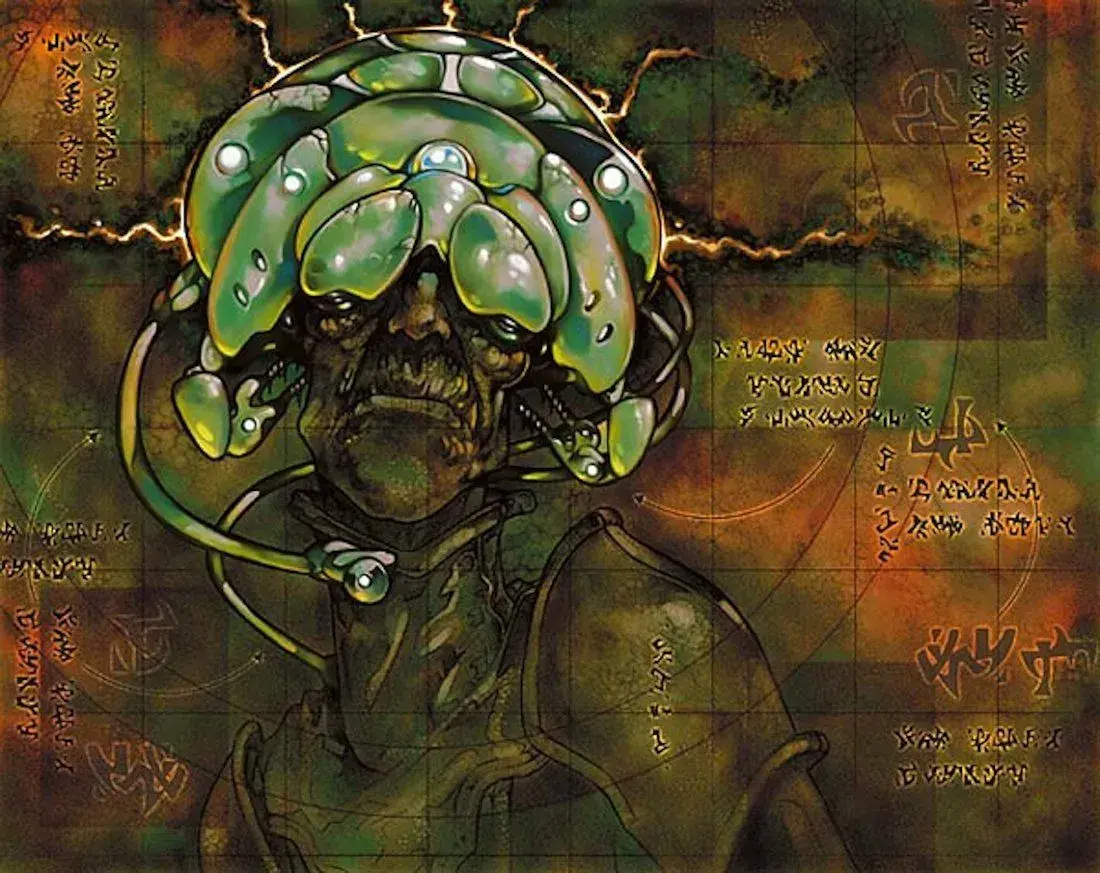I agree with the author for the most part, but I don’t think it’s just “us.” I would say that discoverability in general is just a lot worse now due to SEO gentrification and search engines facing enshittification. There’s still cool projects like Neocities around, but if it weren’t for networking I’d have no idea they exist. When I type “build a website” into DuckDuckGo and StartPage, I just get links to squarespace, wix, godaddy, and a few listicles. In order to curate cool stuff, you have to be able to find it first; have new tools popped up that facilitate this? What are the new heuristics for discovery?
Small ISPs at the start of the internet used to provide you with space that you could ftp a few html files to and they’d be visible on the internet at myisp/~yourusername.
Of course that cost them a little bit of money and storage space so when they all got absorbed into megaISPs that kind of thing got dropped. Then it was all up to Geocities and friends or you had to go buy hosting from your ISP, both of which was enough of a hurdle to stop the average person from playing with it.
I think it’s a more global movement.
When I was recruited at my university in the early 2000s, every teacher had an ftp-accessible space with an http address like myuni.edu/~myname. The more techie ones did html, the fancier ones even added css. Muggles would export html from a Word document.
Then one day, the IT department decided to replace this with a “learning management system”. A wysiwyg platform with dozens of modules for videoconferencing courses, homework submission, online exams, and so forth.
Except that the user (the teacher) no longer has control over his or her personal space.
Having worked in a university web team back in the day, these user personal spaces got dropped for various reasons. Teaching staff would push back on increasing password security, so accounts got hacked continuously. People would upload malicious applications through cgi-bins and the like. Maintenance costs skyrocketed. The cost of keeping these going because of these reasons were just not justifiable anymore, and it was much easier to provide them an account on a WYSIWYG system that could be secured, patched and maintained by an external company.
With the rise of online learning portals that included these features as standard, it became less justifiable. Why pay for two products, when one would do.
What we really need today is NextCloud images that are so easy to set up that anyone can run one on their computer, phone, or a cloud hosting service with just a few clicks. And adding in federated services would be the next obvious step — first store all your own stuff where you can access it and share selected bits with others, and then have a small pool where you automatically see the stuff others in your groups have made public.
A problem I’m having these days is that a LOT of resources I used around the start of http never got indexed by Archive.org and are now offline. But people still have that stuff stored locally, and would likely be willing to share if they knew others were interested in it.
Back in the late 90s, I made a website, which was inspired by another website I had seen - which I had found by chance on whichever search engine I was using at the time (there were so many back then). I was not the only one. A good 30 or 40 of us ended up with a bunch of separate but connected websites that traded stories and art, resulting in a whole community revolving around a shared interest.
It all faded away in the mid/late 00s as people got jobs and families, and ISPs stopped offering webhosting and Geocities was shut down… But it was still something that stayed with me as a lot of fond memories (plus some not-so-fond ones, because let’s face it, teenagers can be dramatic). In the midst of the pandemic, I got an email one day from someone from that community who was wondering if anyone was interested in starting it back up again, and so was reaching out to see if any of the old email addresses were still active. Well, mine was, and it turned out quite a few of the others were too - and other people were reachable under the same usernames on other platforms.
Long story short, we’ve got a group of almost 30 people who resurrected an old 90s and 00s community. Most participated in the original version, others were friends who joined the new version because it looked like fun. We’ve all got websites in various stages of construction (yep, after 3 years, some of these websites are still only barely functional!), mostly using our own webhosting or borrowing a subdomain on someone else’s - and most using nothing more than HTML and CSS. Some things are different: back in the old days, I never hesitated to put my email address on the site to invite contributions from others in the community. I wouldn’t do that now. We use Discord and Google Forms instead.
Where I’m going with this is that keeping a little bit of the internet alive has taken a deliberate effort. It was definitely all of us who vanished, and we had to make the effort to get back together, to rebuild websites, to share old files to help reconstruct information that’s lost to the mists of time (a shared records database runs to 22,000 entries). I very much doubt any of it is discoverable without very specific search terms. But I think that’s okay.
Incredibile story, thank you for telling us
For me, the old internet died when Silverfish Longboarding moved to Facebook. The most concerning is the current move of support pages and forums to Discord.
I honestly do not understand moving support pages and forums to Discord. All it achieves is guaranteeing a thousand different people with the same problem will all ask exactly the same question over and over again, because they’re unable or unwilling to scroll back through hundreds or thousands of messages in a Discord channel. It might seem like less effort than setting up support pages with answers to all the common problems, but it’s actually more effort in the long run because so much work is duplicated just by the nature of the format.
You are so right.
Completely agree. Chatrooms are absolutely terrible for support.
Yep. I have never had to use Discord. Or, I suppose I should say I haven’t had to use it yet. But when I see that a project uses Discord and not a forum or even Discourse, Matrix or IRC, I just hope I never have to ask for help.
Here’s what I think happened: we got used to shitload of content and personal pages couldn’t keep up.
My first experience with the internet was a dial-up modelm. It wasn’t cheap so we were basically counting minutes. In a short session I would check my email, download new winamp skin, open a link some friend send me and maybe visit some chatroom. That’s it. Back then each page was a gem because the content was super rare. For example I could download all the Monty Python sketches. Where would you find them if not on some obscure website? They didn’t have it in the library.
Then broadband happened so you could spend hours online. People started forming small communities and curating content. bash.org and similar pages happened. We started getting used to opening a link daily and seeing new funny pics and memes.
Finally corporations realized that to keep people on a page it has to show something new every fucking second and social media happened. Today we spend more time online than offline and refresh some pages every 15 minutes to see what’s new. Static, personal pages can’t keep up. Yes, you can create a Melisandre fan page, paste couple of pictures and start writing some fan fiction but who will read it? 30 years ago if I found such website I would save every single pick to disk and put a link to the page on www.myhomepage.com/links but today? It’s pointless. It’s all already on IMDB, one ddg search away. Personal pages are not the rare gems they used to be.
That’s were all the pages are…
It’s right here.
It is. The web was eventually corporatized and the corporations sucked all the air out of the room suffocating anything too small to compete. The fediverse is, if not taking it back, at least opening a space for those who don’t want to consume from a fully corporatized web. These include many of the people who used to make “websites” instead of “apps” or “platforms”. When people complain that it doesn’t have as much content as say, Reddit, I look at that as a benefit, it’s helping solve the (massive) discovery problem by self-curating thoughtful people who can curate content intelligently and provide real opinions and meaningful thoughts. The signal to noise ratio is much higher, and it’s refreshing.
My feelings exactly. As far as I’m concerned this is what Web 2.0 should have been about - taking the energy and excitement of blogs and forums and federating them together into a collectively owned Fediverse that would have made corporate takeover almost impossible (they would have been forced into the half-assed federating some of them are now promising). Instead, the tech companies moved hard into the territory saying “if you liked that then you’ll love this even more as it’s convenient.” Unfortunately, they have now built the size and momentum that makes it difficult to stop or kill them entirely but that also means they reached the level the level where they felt confident to start enshittification and we’ll be waiting when people can’t take any more and leave. The bonus is it should help filter out a lot of the idiots who are happy in their walled garden.
I tried the various Web 2.0 offerings and it didn’t feel right. I jumped on dyaspora but it felt like it’s time had yet to come. Web 3.0 turned out to be a grift. So, as I have argued before, I think this is the start of Web 4.0 which will be about openness, collaboration and collectivity.
I’ll always want new services (I’m waiting on a federated IMDb replacement) and improvements to existing ones (we could really do with a wiki integrated into Lemmy) but I am already enthusiastic about the Fediverse (borderline evangelical sometimes) and I feel like we are building the next phase of the Web providing all the necessary tools for people to build the next great websites.
As another comment has said, the issue currently seems to be search engines not returning great links and the Fediverse isn’t ranking high in search engine results, yet. Perhaps we need a federated search engine - one you can add custom algorithms to…
Perhaps we need a federated search engine - one you can add custom algorithms to…
Well, something that can be done is having search engines that grab from a wide variety of sources. The go-to FOSS example of this would be SearXNG, so if someone is interested in a project like that, then this would be a good starting point.
Oh yes, just like that. I imagine there’s a lot you could do to with that as they’ve got the core engine looking solid.
This is a good search engine for finding text-based small sites. https://search.marginalia.nu/
And there’s a few cool personal projects here: https://simone.computer/#/webdesktops
I used to have a personal website which I am seriously considering making one again.
But self hosting is something I don’t want to work on right now. Neocities maybe one of the options.
It’s really easy now with tools like Hugo and services like Netlify. Check em out
EDITED A TYPO
I really like Neocities - highly recommended for a personal website.
Some are here: https://theuselessweb.com/















